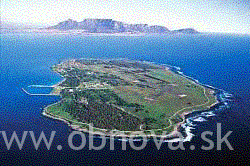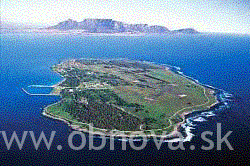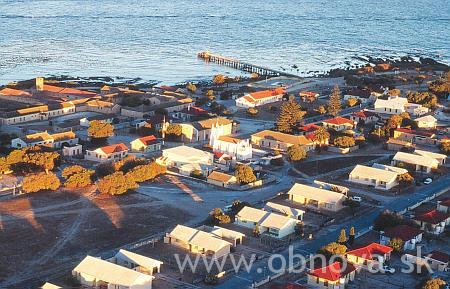Robben Island, South Africa

Laura Robinson, ICOMOS South Africa
Laura Robinson is the Director of the Capetown Heritage Trust in South Africa and a member of ICOMOS South Africa. While visiting Melbourne briefly this week, she gave a talk about the conservation work at Robben Island.Outside South Africa, Robben Island is best known as the place where Nelson Mandela and other political prisoners opposed to apartheid were imprisoned. The Island has a 400-year history of banishment and exile including a former leper colony and mental institution as well as the prison. During World War II, military defences for Capetown were also located on the Island. Each of these layers of history is respected and interpreted in the approach taken to the Island’s conservation.

All political prisoners were released from Robben Island following the defeat of apartheid. The Island became a National Museum in 1996. South Africa signed the World Heritage Convention relatively recently in 1997 and in 1999, Robben Island was inscribed on the World Heritage List. Robben Island symbolises the triumph of the human spirit over enormous hardship and adversity.
Laura showed a number of slides of Robben Island. She described the architecture of the prison and associated village (where the prison staff and their families lived) as ‘uninspired’ and ‘mundane’. Many of the buildings were constructed by the prisoners, using materials quarried from the Island.
The built elements of the Island include a large number of buildings (prison structures, houses, churches, sport facilities, etc), as well as the services infrastructure, roads, landscaping, harbour structures, quarries (for stone, lime and slate), fences, a lighthouse, and gun emplacements. The harsh maritime environment poses major conservation challenges.

There is a substantial oral history program, and ongoing documentary research about the history of the Island. The museum has developed two important databases the first is an inventory of sites on the island (including statements of significance); and the other is a database of former political prisoners.
Visitors travel to Robben Island via a ferry from Capetown. Although the crossing is a relatively short one, it is an often rough passage. There are over 300 shipwrecks in the waters surrounding Robben Island.
For more information about Robben Island: www.robben-island.org.za.



